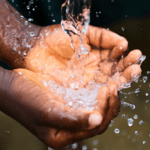Access to safe water and sanitation is essential for human health and well-being. However, billions of people around the world, particularly those living in rural areas, do not have access to these basic necessities.
In rural areas, the challenges of providing safe water and sanitation are often compounded by factors such as poverty, remoteness, and lack of infrastructure. As a result, rural communities are disproportionately affected by waterborne diseases, such as diarrhea, cholera, and typhoid.
There are a number of initiatives underway to improve rural water supply and sanitation. These initiatives focus on a range of interventions, including:
- Developing new water sources, such as boreholes and rainwater harvesting systems
- Improving the quality of existing water sources through treatment and purification
- Building sanitation facilities, such as toilets and latrines
- Raising awareness about the importance of hygiene


